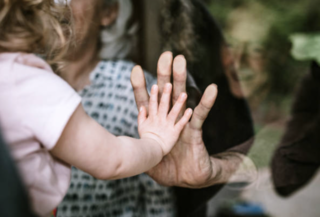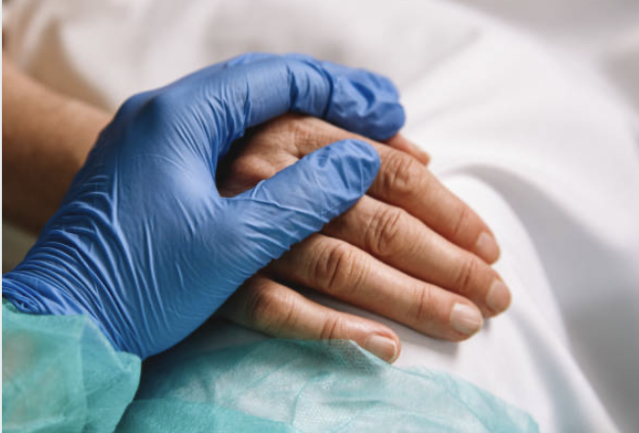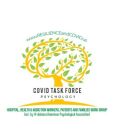Coronavirus Disease 2019
The Lethal COVID-19 Pandemic Forges Resilience for Life
Reflections we continue to contemplate a year after the declaration of COVID-19.
Posted March 28, 2021 Reviewed by Jessica Schrader
Key points
- During the past year, each of us has gained an understanding of different necessities and values in life.
- This anniversary not only commemorates a crisis but also reminds us how much we have all overcome and learned.
- Many people have a new appreciation for the importance of mental health, physical activity, social interactions, and essential workers.
This post was written by Rita M. Rivera, M.S., a member of the Medical and Addictions working group of the COVID Psychology Task Force (established by 14 members of the American Psychological Association), which sponsors this blog.
On March 11, 2020, the World Health Organization (WHO) declared Coronavirus 19 a global pandemic. Days later, mandatory lockdowns and sanitary regulations were enforced in several countries around the world. Each nation handles the COVID-19 distinctively. Each person has been impacted by the pandemic differently. However, despite the different circumstances, we have all been experiencing this global crisis for over a year. Throughout the past year, COVID-19 has become an example of collective trauma. Yet, it has also shown us the remarkable resilience human beings are capable of. During the past year, each of us has gained an understanding of different necessities and values in life. The following are a few lessons that most of us may have learned during these unprecedented times.

1. We are social creatures, and social interaction is important.
Although there are many of us who are considered introverts, we have come to understand that overall, human beings are social creatures. Science has shown us we are biologically wired to connect with others; we are inherently social. Sure, we need free time to be with ourselves and enjoy our own company, but we also need to connect with others. We want to share our personal experiences with our loved ones, our families, and our friends. Sanitary practices, such as physical distancing, have been essential safety measures during the past year. Nonetheless, they have also deprived us of physical touch and social interaction. As we continue following these safety measures to keep our loved ones and ourselves safe, we must also remember to keep interacting with others. Online meetings and physically distanced events may not be ideal, but it is important for each of us to keep sharing with one other. Together, we can continue pushing through.
2. Physical activity is necessary and conducive to a healthy lifestyle.
We were fortunate that we live in times where technology has made it possible for us to work and/or study at home. Many of us had to adapt to online modalities during the past year. As we continued experiencing lockdowns, it was required for us to stay indoors. Many nations around the globe also encouraged their citizens to remain at home as much as possible. We were still trying to understand the disease, and our priority was not getting sick from it. However, we soon found out that we can also get sick from being indoors all the time. Our bodies require daily physical activity to function properly. Overall, it is healthy to exercise, but doing it outdoors can also help us receive a healthy dose of fresh air and sunlight. Now that we understand the novel virus better and progressively reopen our societies, we must remember to exercise our bodies. Let’s go outside (keeping our distance from strangers and complying with our authorities), move our bodies, and enjoy some fresh air. During these times, the mere act of breathing is truly a blessing we should not take for granted.
3. Mental health is as important as physical health.
COVID-19 has highlighted the importance of mental health. For many, the pandemic became a trigger for psychological conditions such as anxiety, depression, social isolation, complicated grief, hypochondriasis, obsessions, compulsions, substance abuse, and emotional fatigue. For others, COVID-19 worsened pre-existing conditions. The psychosocial stressors brought by the novel virus brought momentum to the topic of mental health. It is imperative we use this to educate our societies on the importance of mental health and aspire to end any stigma surrounding mental health conditions.

4. We are grateful for all essential workers.
To our essential workers, we say thank you. Doctors, nurses, therapists, medical professionals, and health care workers have been taking care of our health and well-being. Police, firefighters, and other first responders have been protecting and supporting us. Furthermore, we must also recognize our grocery workers, farmers, fishermen, public transportation operators, and all of the workers that helped our societies during the past year. We are also grateful for educators who supported their students and fought for their education. Finally, we acknowledge the significant work of scientists and researchers worldwide. All of our essential workers continued doing their impactful jobs, helping and supporting our societies when they also experienced issues. Thank you to each and all of you. Let’s remember to say thanks to the essential workers we personally know and have in our lives.
5. Human beings are truly resilient.
During the past year, we have lost so many and so much. We cannot ignore how challenging and painful it has been, and it may continue to be. However, we need to reflect on how much we have conquered. The pandemic has been an unexpected, distressing event. Yet, each of us continues exhibiting resilience as we push through during strenuous circumstances and events. Take a moment to reflect on that and be kind enough to yourself to acknowledge your courage and strength. This anniversary not only commemorates a crisis but also reminds us how much we have all overcome and learned. It is a resilient thing to be human.

Rita M. Rivera, M.S., is pursuing a Psy.D. in clinical psychology at Albizu University in Florida. She is chair of the Florida Psychological Association of Graduate Students (FPAGS), president of the Florida Graduate Coalition for Medical Psychology, student ambassador for APA Division 15, student representative for APA Division 49, and co-chair of several working groups of the APA’s Interdivisional COVID-19 Taskforce, including the Higher Education working group. Rita is also a writer for APA’s Society of Counseling Psychology-SCP Connect Team. Her areas of interest include fields that explore the relationship between physiology and mental health, such as psychoneuroimmunology and psychoneuroendocrinology. Rita has clinical experience working with Hispanic patients and high-risk populations both in the United States and in her home country, Honduras.


